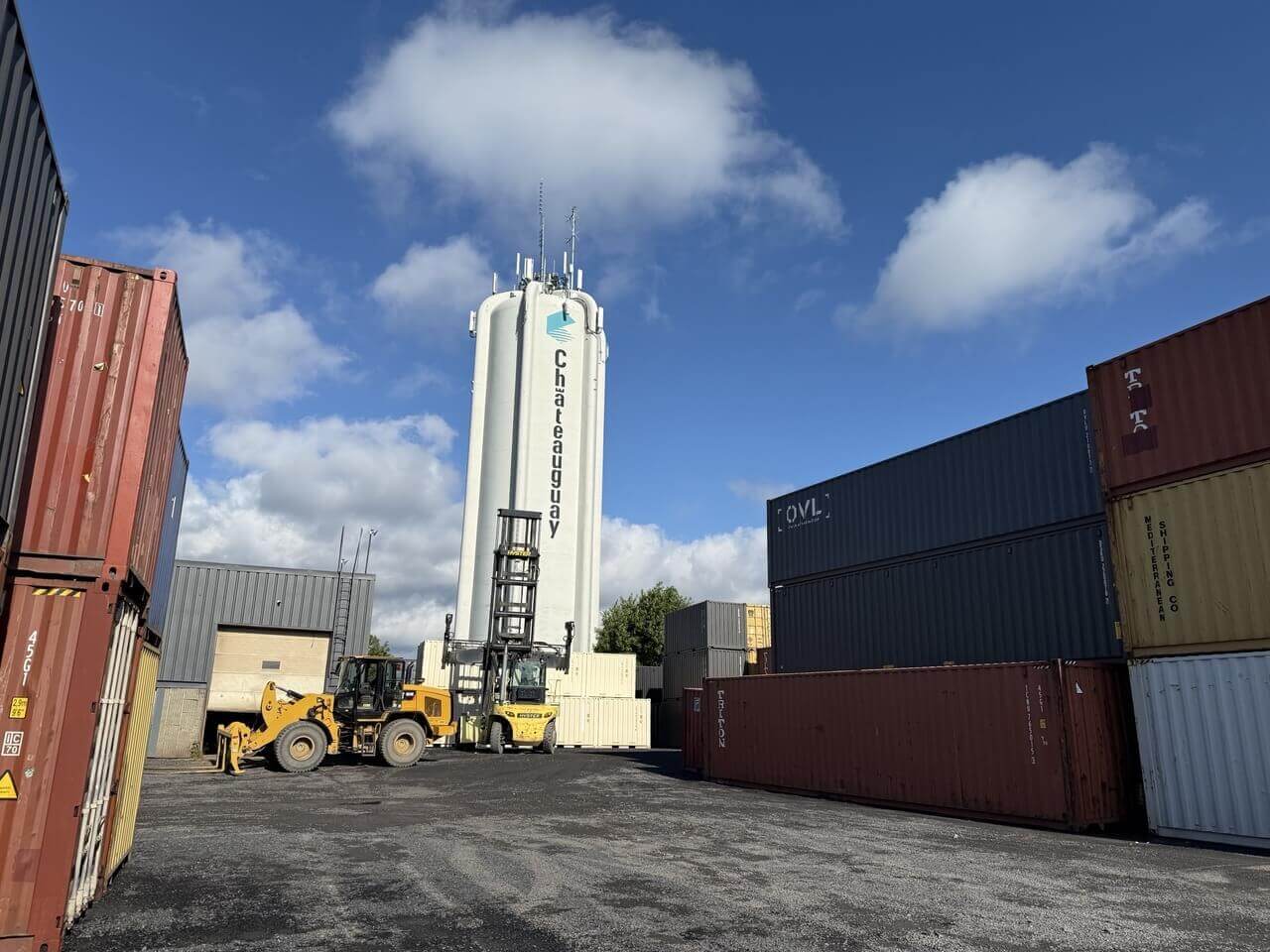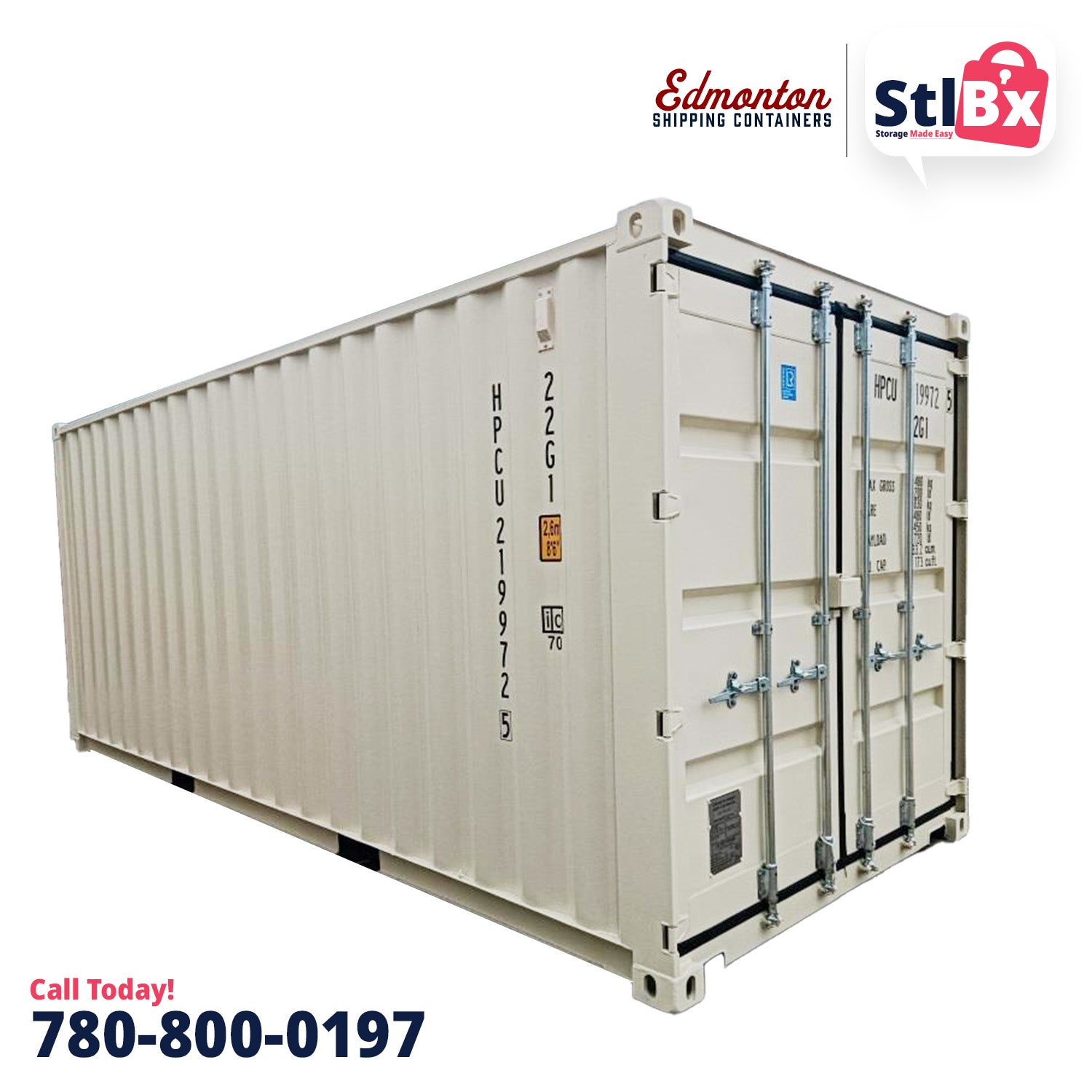How businesses use Shipping Containers for Sale for modern commerce
Wiki Article
Whatever You Need to Find Out About Shipping Containers and Their Practical Applications
Shipping containers have actually developed from simple devices for transportation to flexible structures with numerous sensible applications. Their robust layout and conventional sizing make them optimal for a variety of usages beyond shipping. From innovative real estate services to sustainable farming, their adaptability is significant. The possibilities do not end there. Exploring their different functions discloses shocking insights into contemporary difficulties and imaginative remedies. What other functions could these containers play in today's world?The Layout and Structure of Shipping Containers

Internally, containers are created to optimize area, commonly including wood or steel floor covering that can sustain substantial weight. Ventilation systems might be included to stop wetness buildup, which is important for sensitive freight. Furthermore, reinforced corners permit very easy handling by forklifts and cranes, assisting in seamless loading and unloading. This thoughtful design and framework add to the containers' adaptability across numerous shipping and storage space applications.
Advantages of Making Use Of Shipping Containers
While many transport techniques have their advantages, using shipping containers attracts attention due to their unparalleled convenience and efficiency. Shipping containers use a standard size, making them very easy to stack and move throughout different settings of transportation, including ships, vehicles, and trains. This standardization lowers loading and unloading times, thus enhancing total productivity.Moreover, shipping containers are built from sturdy products, offering robust protection for goods during transportation. They are weather-resistant and safe, lessening the threat of damage from ecological factors or theft. In addition, the modular style of shipping containers permits very easy modification, making it possible for companies to adapt them for various functions, such as storage space or mobile offices.
Lastly, their transportability and cost-effectiveness make shipping containers an eye-catching option for services wanting to streamline logistics and supply chain operations. These benefits add to the expanding appeal of shipping containers in numerous industries.
Creative Real Estate Solutions With Shipping Containers
Ingenious housing solutions have emerged as an amazing application of shipping containers, leveraging their fundamental strengths for residential use. These flexible structures offer a sustainable choice to conventional structure products, frequently at a portion of the cost. Engineers and designers have changed containers into fashionable, practical homes, satisfying diverse lifestyles and preferences.

Shipping containers are eco pleasant, promoting recycling and lowering waste. Lots of jobs concentrate on power efficiency, integrating photovoltaic panels and environment-friendly roof coverings. As urbanization boosts, these ingenious real estate solutions offer a useful reaction to real estate shortages while cultivating a distinct architectural aesthetic.
Shipping Containers in Retail and Pop-Up Shops
A growing number of sellers are transforming to delivering containers as a dynamic solution for retail areas and pop-up stores. These versatile frameworks offer an affordable alternative to standard storefronts, enabling businesses to produce special, appealing settings that attract customers. Their modular layout makes it possible for very easy transport and installment, making them ideal for temporary or seasonal retail locations.Retailers can personalize shipping containers to show their brand name identity, changing them right into aesthetically appealing shops that stick out in crowded marketplaces. The portable nature of containers additionally motivates reliable use space, permitting creative layouts that maximize consumer circulation and interaction. Shipping containers can be positioned in unusual locations, such as metropolitan parks or uninhabited lots, boosting accessibility and foot website traffic.

As the retail landscape advances, delivering containers supply a cutting-edge and flexible service that meets the demands of modern consumers while enhancing the purchasing this post experience.
Sustainable Farming Practices Making Use Of Shipping Containers
Sustainable farming methods significantly incorporate shipping containers as cutting-edge services for farming - sea can for sale. These container farms make use of hydroponics to make the most of space and resource efficiency, providing an economical strategy to food production. By transforming shipping containers into agricultural centers, farmers can deal with food protection and environmental worries all at onceContainer Farming Perks
While standard farming encounters difficulties such as land shortage and environment adjustment, container farming provides a viable option that takes full advantage of space and resources. This ingenious approach enables year-round crop production in regulated settings, minimizing dependence on climate condition. Container farms make use of less water than standard farming, promoting sustainability and conservation. They can be developed in city locations, bringing fresh produce closer to customers and lowering transport discharges. Furthermore, the modular nature of delivery containers allows scalability, allowing farmers to adjust procedures based on demand. Container farming additionally minimizes chemical usage by producing an enclosed environment, eventually enhancing food safety. As city populations expand, container farming becomes a sensible solution to satisfy the boosting need for regional, sustainable food resources.Hydroponics in Containers
Hydroponics, which enables plants to grow without dirt by making use of nutrient-rich water, thrives within the confines of shipping containers, making it a suitable method for metropolitan farming. These containers develop a controlled setting that maximizes temperature level, humidity, and light, allowing year-round farming. With limited room in city locations, delivering containers use a scalable service for expanding fresh fruit and vegetables. Hydroponic systems within containers can consist of numerous techniques, such as nutrient film technique (NFT) and deep water society (DWC), which maximize yield while reducing water usage. This ingenious technique not only enhances food protection however also minimizes the carbon impact related to conventional farming methods. Consequently, hydroponics in containers represents a forward-thinking solution for sustainable urban food manufacturing.Cost-Effective Agriculture Solutions
As food manufacturing deals with enhancing obstacles due to climate change and urbanization, shipping containers become a cost-efficient solution for farming. These flexible structures can be repurposed for numerous lasting farming methods, such as hydroponics and upright farming. By using controlled environments within containers, farmers can optimize development cycles and decrease resource usage, including water and fertilizers. Furthermore, delivering containers can be tactically placed in metropolitan areas, decreasing transport costs and improving access to fresh produce. Their modular nature enables for scalability, allowing farmers to expand operations as need grows. Repurposing containers contributes to squander decrease, straightening with green agricultural initiatives. Overall, shipping containers present cutting-edge chances for sustainable and efficient food manufacturing.Emergency Situation and Catastrophe Relief Applications of Shipping Containers

Organizations regularly make use of shipping containers to develop mobile facilities or area health centers, guaranteeing that treatment gets to those in demand. Furthermore, they can be transformed into command centers for coordinating rescue operations, thereby improving business performance during situations.
Additionally, containers can be customized to save essential items such as food, clothing, and water, guarding supplies until they are distributed. Their mobility allows them to be quickly transported to different areas, making sure Check Out Your URL that help shows up where it is most urgently needed. Generally, shipping containers play an essential function in enhancing the performance of calamity relief campaigns worldwide.
Frequently Asked Questions
How Are Shipping Containers Transported From One Area to An Additional?
Shipping containers are transported through trains, ships, and trucks, utilizing cranes for loading and unloading. This multi-modal transportation system guarantees effective activity throughout land and sea, official website connecting worldwide supply chains and promoting global trade.What Is the Ordinary Lifespan of a Shipping Container?
The typical life expectancy of a delivery container commonly varies from 10 to 25 years, depending on upkeep, usage, and environmental aspects. Appropriate treatment can prolong their use, while neglect might bring about deterioration and damages.Can Shipping Containers Be Modified for Different Usages?
Yes, delivering containers can be customized for numerous usages. They function as homes, offices, pop-up shops, and storage units. Their adaptability permits innovative adjustments, making them suitable for a large range of applications.Are Shipping Containers Environmentally Friendly?
Shipping containers can be eco-friendly, as they advertise reusing and repurposing. Their longevity decreases waste, while their use in different housing and businesses minimizes the requirement for brand-new products, adding to lasting methods.How Do I Pick the Right Size Shipping Container?
To select the best dimension shipping container, one need to examine storage requirements, consider the intended usage, and assess room schedule - shipping containers for sale near me. Common dimensions include 20-foot and 40-foot containers, each offering different storage space and transport requirements effectively
Ingenious housing solutions have actually arised as an interesting application of shipping containers, leveraging their inherent staminas for property use. The versatility of delivery containers allows for innovative designs, from single-unit houses to complex multi-container arrangements. Sustainable farming techniques significantly incorporate shipping containers as cutting-edge options for farming. In addition, the modular nature of delivery containers enables scalability, permitting farmers to change procedures based on demand. Hydroponics, which allows plants to grow without soil by utilizing nutrient-rich water, grows within the boundaries of shipping containers, making it a suitable method for urban farming.
Report this wiki page